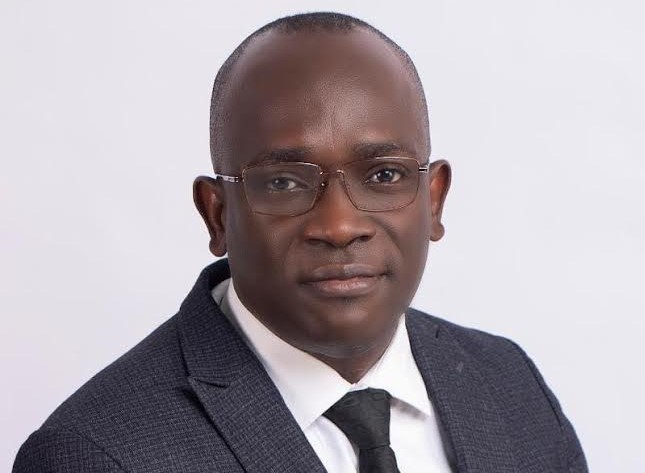The Director General of the Nigeria Employers’ Consultative Association (NECA), Mr. Adewale-Smatt Oyerinde, in an exclusive interview with THISDAY shared his expectations for the economy in 2025 and why the tax reforms bills should be passed into laws without further delay. Dike Onwuamaeze brings the excerpts
What are your expectations for the Nigerian economy in 2025 and beyond?
We view 2025 with optimism following the reforms of the federal government and some critical developments in the economy. With the monetary and fiscal reforms being steered by the Presidential Committee on Fiscal and Tax reforms; the commencement of domestic refining by Dangote Refinery and the “resuscitation” of Port Harcourt Refinery and Petrochemical, and other measures being implemented by the government, there is no doubt that 2025 could be a year to herald our economic recovery. If there are no new negative developments (externally and internally), we expect to see remarkable improvement in the economy from the second half of 2025 going forward. We expect that domestic supply and price of fuel will become stable with a positive effect on the value of Naira as importation of refined fuel is drastically reduced.
What is your view about the minimum wage?
The President has signed the new minimum wage into law. But it is justifiable to say that the recent economic issues like the increase in the cost of living, removal of subsidy from electricity, etc. has really affected the reality of the N70,000. We are hoping that the economic situation will improve so that the value of that N70,000 can actually take the average worker home.
How do you see the future of labour and industrial harmony in Nigeria?
It has faced its challenges really from strikes to sympathy strikes. The protracted issues between Academic Staff Union of Universities (ASUU) and government seemed not to be going away. The polytechnic lecturers, including their non-academic staff, have their issues. At the point it is like the centre will not hold. But we have continuously advocated for social dialogue and will continue to advocate for it. We will continue to advocate for good faith among the tripartite and social partners or negotiating partners in whatever context. All of can abide by the basic principles of negotiations and allow national interest to guide all our engagement on the long run.
What is your view on the passage of Tax Reform Bills which have been stalled for some time now due to raging controversies?
For many years we have complained about multiplicity of taxes, levies and fees. When we say that businesses are paying over 60 different taxes, levies and fees, some people think that they are just statistics. But there are researches to back that up. The advent of the Presidential Advisory Committee on Tax and Fiscal Policies is a welcomed development for us. Its work is also one of the credible milestones and legacy that the President Tinubu’s administration will leave for us as a country. Beyond the religious or sectional interest that have dominated the conversations, we think that the committee has done a credible job. We believe strongly that the bills meant well for an average Nigerian, businesses and every critical stakeholders within the context of this country. We urge that people should take time to read the contents of the bills and make constructive contributions within the context of those areas they felt that needed to be rejigged, amended or be reviewed. But the bills represent the directions that we need to be going at least within the context of our economic development.
What is your advice to the politicians agitating against the tax reform bills?
My advice is that they should take a second look at the bills. We cannot just throw the baby away with the bath water. What are their areas of concerns so that the chairman of the committee will give clarity so that we can have consensus. But delaying the bills for religious, sectional or political reasons will not do this country any good.
How far has Nigeria’s regulatory environment improved in the passing year?
It has not really improved. A lot is still needed to be done. Recently, we heard the Minister of Aviation and Aeronautical Development complaining about the activities of one of the regulators, the Federal Competition and Consumer Protetion Commission (FCCPC), that their actions and comments were reckless. If that could happen at the federal government’s level you can now imagine what the private sector is facing. Regulation still remains a critical bottleneck in the context of the growth of the private sector. It creates problems and confusion for an average business owner. And for the investor that is coming to put his money within the context of this economy, if there is no clarity within the context of these regulatory engagements then there is no way those investors will come here. And it is unfortunate that we still have regulators that have taken it upon themselves to rather focus on slamming penalties, or in the extreme becoming undertakers of legitimate private businesses in this environment. Regulation is not the problem but the activities of the regulators are major problems that private sector is facing. Regulators must facilitate business and view their roles as developmental rather than being punitive on organised businesses.
What are your views on the recent stakeholders’ meeting with the Minister for State for Industry on how to move the manufacturing sector and OPS forward?
First, we want to commend the Minister of State for Industry for making that to happen and also the substantive Minister of Industry, Trade and Investment for her engagements with us thus far. I think that it was a productive engagement really and we are happy that the minister listened and his team harvested the issues and recommendations from the organized private sector. They also gave us the assurance that those issues should be addressed. There is also the commitment that the engagement will be continuous and not just a one-off engagement. He also gave us the commitment that the conversation will be action driven so that all stakeholders can track the outcomes on those issues. We also emphasised that the Fedareal Ministry of Industry, Trade and Investment (FMITI) can play a definitive role in the context of driving this economy out of the woods. If it will address the basic fundamentals and enable manufacturing and other sectors to grow it will have a direct impact on our GDP and our ability to be competitive within the context of the AfCFTA implementation.
One of the issues that were raised was access to foreign exchange and power tariff. Do you expect a special package for manufacturers in these areas?
It is a matter of exactly what the government wants to achieve and what its priorities are. We think that the only way to address the challenge of access to foreign exchange is to increase its supply. As long as the scarcity in supply persists you will continue to experience deteriorations in the value of the Naira. If we do not address these fundamentals, we will just be going in circles. Another way is to address it is for manufacturing to produce sufficiently enough to export. The second issue is power. It is quite unfortunate that we find ourselves in this quagmire of the national grid collapsing as if it is a joke almost every other week. We should not put the cart before the horse. If the government wants to increase tariff for electricity, it should fix its supply first.
What is the way out of the power supply problem, especially the Band “A” issue, which the manufacturing association has challenged unsuccessfully in the court?
It still boils down to what the priorities of the government are. For us to play effectively within the context of the African Continental Free Trade Area (AfCFTA) we must increase our capacity to produce. It is as simple as that. And our production must also be competitive. How will our products compete with those from Ghana or Ivory Coast where their government subsidies the cost of infrastructure? If we do not deal with these issues, our businesses will remain uncompetitive and we will be playing second fiddle within the context of maximising the opportunities offered by the AfCFTA.
What measures will the government take to address the challenges hindering exportation of manufactured goods from Nigeria?
The first thing is to improve infrastructure within the context of power, road and provide the critical elements that manufacturing needs like access to foreign exchange for importation of inputs. Government must also go beyond paying lip services and support businesses that are willing and committed to investing in backward integration. These will position Nigeria to be a net producer and exporter.
Currently the Raw Material Research and Development Council is pushing for the passage of a bill that will make it mandatory that every raw material extracted from the Nigerian soil must attain at least 30 per cent value addition before export. What is your view on this?
I think that is the way to go because you need to add value to aximize your earnings from these raw materials. Otherwise you will be doing the hard work and allowing those that will buy from you to rip the benefits. Consumers buy value. You buy cocoa not for the sake of cocoa but the chocolate and beverages you will derive from it.
What are the highpoints of NECA’s contribution in 2024?
One of the biggest things we have done is to assist our members to navigate the murky waters of regulations, legislations and the challenging business environment. We have helped our members and have engaged on behalf of our members at the risk of being termed adversarial. We have protected and advanced the course of organised businesses because we know that organised businesses must thrive for this economy to thrive. We have helped to develop technical and vocational skills for young Nigerians. Our footprints are everywhere for all to see.
How far is the problem of legislative interference on the operations of organised businesses?
It is still an ongoing issue from one committee to the other that it is now becoming so distractive. Our view is that there are executive agencies and authorities that have been created to interface with organised businesses. If there is infraction, the National Assembly should allow these agencies to deal with it. Otherwise it will be weakening the agencies. The oversight functions of the National Assembly should be limited to agencies where government has appropriated funds. Not on private businesses.
Some exporters are complaining about hurdles they experience in exporting goods even though the government talks about encouraging non-oil foreign exchange earnings?
First we need to share necessary information with Nigeria Export Promotion Council and the FMITI. It is the responsibility of any business that wishes to export to get all the basic information it would need, especially basic qualities products must have before they will be exported.



